Exquisite man made Diamonds for Diamond Lovers
Lab created diamonds or
Lab grown diamonds in India
are developed in a lab using cutting-edge technology under controlled conditions. These aesthetically appealing diamonds are optically identical with natural diamonds, but are way less expensive than the natural ones. Exactly like natural diamonds,
synthetic diamonds
are also graded for quality on 4 important parameters. They are graded on 4C’s which refer to Cut, Color, Clarity and Carat.
CVD Diamond Characteristics
Lab grown diamond manufacturer
use two processes to create these diamonds. They are (i) High Pressure High Temperature (HPHT) and (ii) Chemical Vapour Deposition. ABD Diamonds is one of the growing CVD diamond manufacturers in India.CVD Rough Diamonds are graded and categorized through its different characteristics in the diamond industry. Any diamond is graded on the basis of 4C'S.
The 4C'S consist of:
- Cut
- Clarity
- Color
- Carat
These are the basic details Gemologists and jewelers see in diamonds :
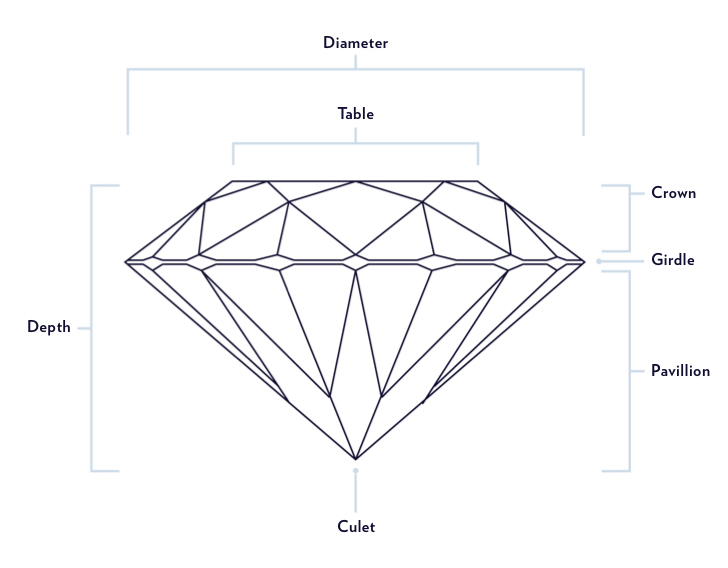
Lab grown diamond Cut
Diamond cut is the most important criteria of grading. According to the
Lab grown diamond manufacturers
, the brilliance of a diamond depends on how good the cut is. Furthermore, lab grown Fancy Cut Diamonds are defined and categorized in different grades to help the customers in determining the cut of a particular diamond. The grades are:
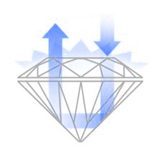
Excellent
'Excellent' cut diamonds reflects the maximum amount of brilliance and fire. It reflects nearly all light that enters the diamond, creating exceptional sparkle and life.
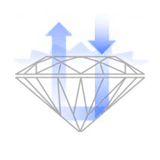
Very Good
'Very Good' cut diamond properly reflects most of the light that enters the diamond, producing superior fire and brilliance. Under normal lighting conditions, an excellent cut is reflected in Lab Grown Diamonds at wholesale price.
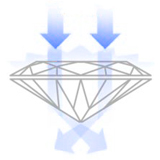
Good
Reflects a majority of the light that enters the diamond, for an above average appearance. An excellent value compared to higher cut grades.
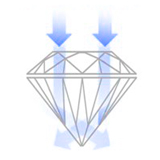
Fair/Poor
Allows much of the light entering the diamond to escape from the sides or bottom, reducing perceived fire and brilliance. More acceptable in diamonds weighing less than 0.75 carats, where differences in sparkle are more difficult to perceive. The diamond may appear noticeably dull and lifeless, even to an untrained eye.
Lab grown diamond Clarity
The clarity of the diamond is rated by the quantity and position of 'inclusions' or flaws, which bothers the light that passes through the diamond. The rating of the diamond is done in the following categories:
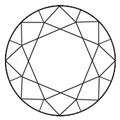
Flawless (without inclusions or imperfections)
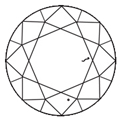
Flawless (IF)
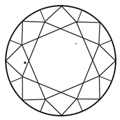
Very, Very Slightly Included (VVS1 and VVS2)
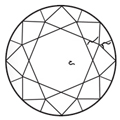
Very Slightly Included (VS1 and VS2)
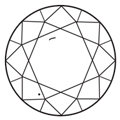
Slightly Included (SI1 and SI2)
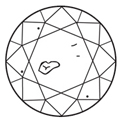
Included (I1, I2, and I3) (with inclusions or imperfect)
Lab grown diamond Color
When most industry experts discuss the color of diamonds, they are generally referring to lack of transparency or color of the diamond. CVD Diamond manufacturers create diamonds that are made of 100% pure carbon without impurities therefore they are completely colorless. However, almost all diamonds contain some extent of color impurity caused by traces of nitrogen, boron, hydrogen or other elements. Most diamonds suffer only traces of nitrogen, which produces a pale yellow or brownish color.
Method Of Diamond Color Grading:
To grade color of the diamonds, they should be free, because if the diamond is in the metal, the metal will affect the color we perceive. For example, a slightly yellow diamond might glitter more if categorized under yellow gold while it looks less yellow if categorized under white gold or platinum.
Diamonds are placed table-down, pavilion up, and magnified under 10X loup.
Lettering system from D to Z is used to determine the amount of color in each diamond with D awarded only to rarely complete colorless diamonds.
Grades of Diamond color: Colorless diamonds and diamonds that are yellow or yellowish brown are grouped into the following categories. These varieties do not apply to fancy colored diamonds - they have their own grades.
| Color Grades | D E F | G H I J | K L M | N to R | S to Z |
| Parameters | Colorless | Near Colorless | Faint | Very Light | Light |

Lab grown diamond Carat
It's easier to understand this C of all "4Cs". A unit of weight for lab grown diamonds and other gemstones is carat. Weight of a diamond is directly related to the size, and although incorrect, these terms are sometimes used interchangeably. It is a term that is derived from the use of an ancient 'Carob' seed in measuring small weights. Table of common weight-related terms are given below.
One Carat is 0.200 grams (There are 5 carats in 1 gram and 142 carats to 1 oz.)
A carat is divided into 100 parts each called a point. So,
- 1 carat = 100 points
- Three Quarter Carat = 75 points
- Half Carat = 50 points
- Quarter Carat = 25 points
Why Choose Lab Created Diamonds?
Mining Free
Lab grown diamonds are mining free and that’s why millennials are simply fond of them. These diamonds are guilt-free as well.
Aesthetic Appeal
Rich in quality and visual appeal synthetic diamonds are a preferred choice over natural diamonds owing to its ethical value and quality.
Value
25 to 30 percent cheaper than natural diamonds, lab created diamonds are a wonderful option for investment.
Comparison Between
CVD LAB Grown Diamond Vs Nature Diamond
| Particulars | Lab Grown Diamond | Natural Diamond |
|---|---|---|
| Is it Conflict Free? | Yes | May Be |
| Whether it is real or not? | 100% | 100% |
| Where does it come from? | Laboratory | It is found in Mines |
| Is it eco-friendly? | 100% | Not at all |
| Which is better in terms of quality? | Since created in Lab , it comes without flaws | No quality standard is predicted |
| Can you customize it? | Yes | May or may not be |
| How long does it live? | Forever | Forever |
| Is it artificial? | No | No |
| Will the Diamonds brilliance/shine go away with time? | No | No |
| Whether it is diamond or not? | Yes | Yes |
| Which is more affordable? | Yes very cost effective | Not cost effective |
| Can the quality delivered in quantity? | Yes. It is manufactured in controlled conditions. | Cannot be determined |
